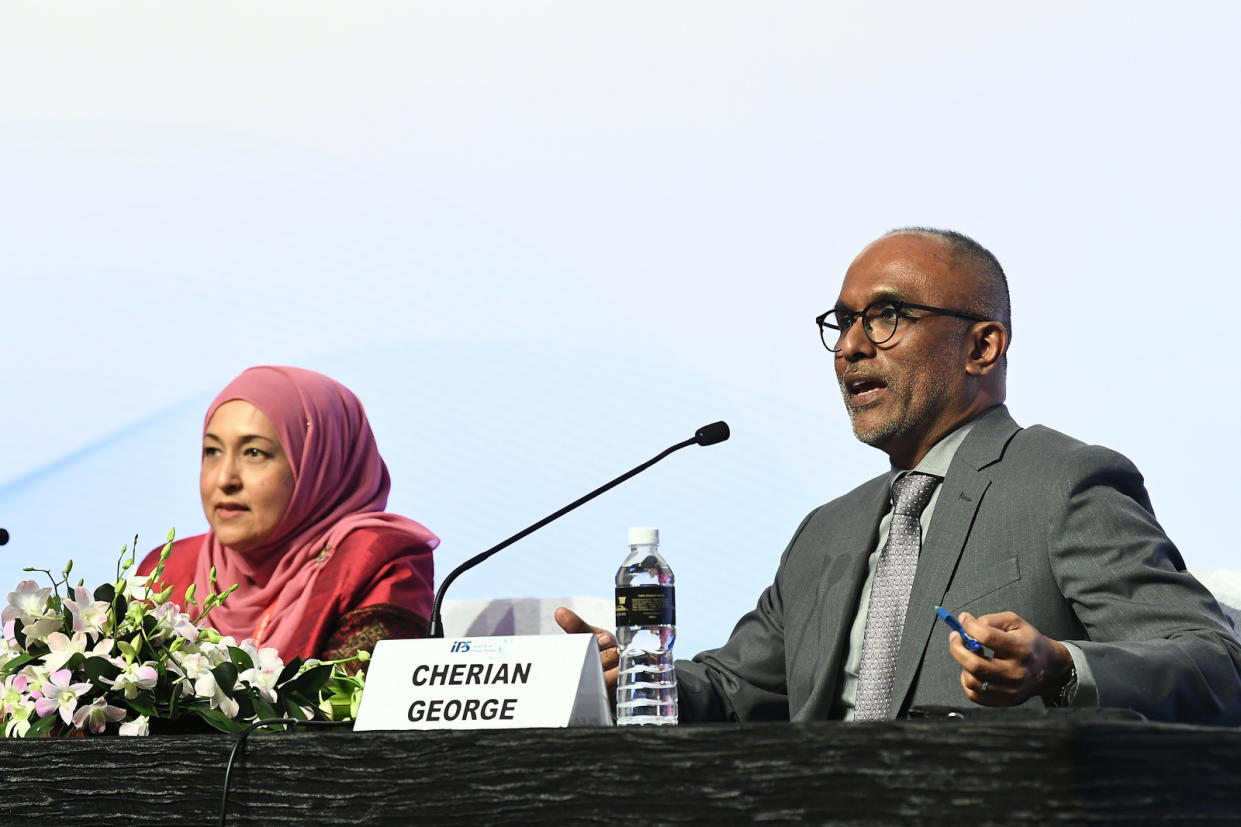New fake news law won't affect votes, says academic Cherian George

SINGAPORE — While the proposed fake news law by the Singapore government may upset and annoy the public, the Bill is unlikely to cause such outrage that it would affect its votes at the ballot box, said academic Cherian George on Friday (26 April).
He was responding to a question during a university forum by Yale-NUS College, asking why the government chose to unveil the Protection from Online Falsehoods and Manipulation Act (POFMA) prior to general elections, while anticipating outrage among the public.
“I would be sceptical about your premise that this law would be so outrageous that it would be a vote-loser,” said the Hong Kong Baptist University media professor at the forum, which was titled Press Freedom and Democracy.
“Although many of us, including myself, are very upset with this law, the truth is, in the larger scheme of things, this is not the kind of thing that will get a large number of citizens so outraged that they will change (their votes).”
The forum comes in the wake of the tabling of POFMA for a First Reading in Parliament on 1 April. The law ministry said the Bill seeks to protect society against the damage from deliberate online falsehoods created by malicious actors. It defines a falsehood as a statement of fact that is false or misleading.
Proposed sanctions include fines of between $30,000 and $1 million, and/or up to 10 years’ jail. The penalties could be doubled if the falsehood will, or is likely to, impact public interest as defined in the law.
In the wake of impending legislation, there have been much discussion about various aspects of the proposed law. Among other things, more than 100 academics have expressed concern that it could stifle academic freedom. Several current and former media practitioners have also issued a statement expressing their disappointment and concerns over the Bill.
Erosion of trust in institutions
At the forum, Prof George said that people have never been better informed and able to circulate truths. However, fake news has worked because “malicious actors … have successfully eroded trust in institutions that people used to be able to count on to tell them what’s wrong”, including the press and mainstream political parties.
“It is because of that erosion of trust that the vacuum is filled by industrial-strength propaganda and disinformation. We cannot find trust if we are going to subject those same institutions to the wills of politicians,” he said.
The professor noted that societal development over the past two centuries has been due to the rejection of the idea that “people with the most power decide what’s true and what’s false”.
Instead, human progress has been brought about “precisely because we subject truth claims to open debate, to scientific analysis, and we decide on that that basis what’s true and what’s false”.
Prof George added, “The very basis of POFMA overturns that, which is why academics are so upset about this. You’re undermining the very bedrock on which universities are founded, which are institutions where truth is judged on the strength of an idea, not on what the most powerful man in the room says.”
Forum in commemoration of World Press Freedom Day
The Yale-NUS College forum was held in commemoration of the United Nations’ World Press Freedom Day, which falls next Friday (3 May).
Other panellists at the forum were Kristen Han, editor-in-chief of New Naratif, and Tess Bacalla, executive director of the Southeast Asian Press Alliance, which promotes and defends press freedom and free expression across the region.
The forum was organised by student group Community for Advocacy and Political Education, and student-run publication The Octant.
Related stories:
COMMENT: Singapore’s online falsehoods bill will deepen culture of self-censorship
Singapore media practitioners voice concerns over proposed fake news law
Academics concerned about Singapore’s ‘fake news’ law
Virtually anything can be deemed ‘misleading’ under fake news law: historian Thum Ping Tjin
COMMENT – Fake news bill: Time for lawyers, MPs to stand up and be counted
Fake news bill: Media professionals favour fact-checking body, divided on its role
COMMENT: Who is the fake news law meant to protect, exactly?



